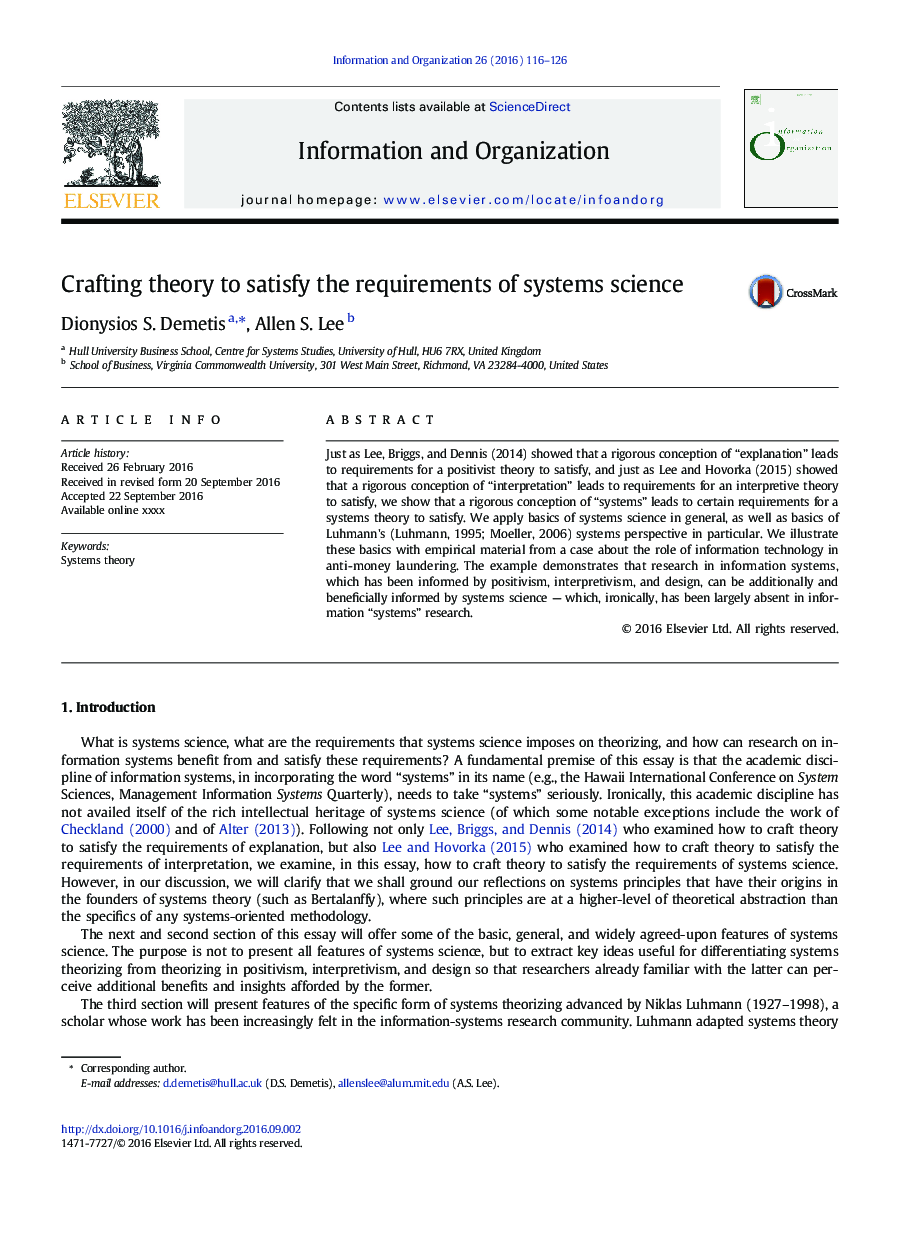| Article ID | Journal | Published Year | Pages | File Type |
|---|---|---|---|---|
| 4972681 | Information and Organization | 2016 | 11 Pages |
Abstract
Just as Lee, Briggs, and Dennis (2014) showed that a rigorous conception of “explanation” leads to requirements for a positivist theory to satisfy, and just as Lee and Hovorka (2015) showed that a rigorous conception of “interpretation” leads to requirements for an interpretive theory to satisfy, we show that a rigorous conception of “systems” leads to certain requirements for a systems theory to satisfy. We apply basics of systems science in general, as well as basics of Luhmann's (Luhmann, 1995; Moeller, 2006) systems perspective in particular. We illustrate these basics with empirical material from a case about the role of information technology in anti-money laundering. The example demonstrates that research in information systems, which has been informed by positivism, interpretivism, and design, can be additionally and beneficially informed by systems science - which, ironically, has been largely absent in information “systems” research.
Related Topics
Physical Sciences and Engineering
Computer Science
Information Systems
Authors
Dionysios S. Demetis, Allen S. Lee,
